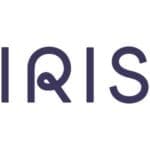
The hospitality industry is a dynamic sector characterized by fluctuating demands and a diverse customer base.
Hospitality Case Study: Highly Seasonal Hotel
In my case, I was operating a branded hotel in a highly seasonal location; The Grand Canyon. Seasonality in the Grand Canyon area was from early March until late October and prior to Covid, visitation at the Grand Canyon had hit almost 6 million visitors in 2019. Hotels maintain over 90% occupancy during that time period. This is a revenue manager’s dream but could be an operation manager’s nightmare.
The real struggle in this scenario and common to most tourist destinations is staffing for these high demand periods. In most cases the local labor pool cannot support the increased staffing needs during high season, or a more recent trend is, some people just do not want to do certain jobs, like Housekeeping.
And in Arizona for example, E-Verify eliminated access to a lot of willing and able workers. I would not say that hotels were knowingly hiring employees who were not able to legally work, but E-Verify definitely put an end to having those workers available.
To maintain high service standards and operational efficiency, (or in some cases just keep the doors open) many hospitality businesses turn to international talent. Two visa programs particularly beneficial for this purpose are the H-2B and J-1 visas. This article delves into the advantages of employing H-2B and J-1 visa holders in the hospitality industry, outlines the processes for obtaining these employees, and highlights the key differences between the two programs.
Benefits of Using H-2B Visa Employees in Hospitality
Seasonal Labor Solutions: The hospitality industry experiences significant seasonal variations, with peaks during holidays and tourist seasons. H-2B visa workers can fill labor gaps during these peak times, ensuring that hotels, resorts, and restaurants maintain high levels of service or in some cases are able to stay in business.
Cost-Effective Staffing: Hiring H-2B visa employees allows hospitality businesses to manage labor costs effectively. Businesses can scale their workforce up or down based on seasonal needs without the financial burden of maintaining a large year-round staff. Keeping in mind there are federally mandated wage requirements, known as “prevailing wage” determined for each geographic business market.
Skilled Workforce: Employers can recruit H-2B workers with specific skills and experience relevant to the hospitality industry, such as culinary expertise, housekeeping, or guest services. This ensures a competent workforce that enhances operational efficiency.
Process & Timeline for Hiring H-2B Workers for your Hotel
The process of obtaining H-2B workers is lengthy but rewarding if successful. For example: if you want to hire for March, you have to start the process in September the prior year. Some companies only hire a handful of H-2B workers and others, like Disney, hire 20 or more for their season.
Here are a few things to consider when contemplating if the H-2B program is suited for your company.
- Do you have a big enough seasonality shift to be eligible?
- The prevailing wage determined by the DOL for a specific position applies to all staff working in that position while you have any H-2B workers in that position.
- If you hire an H-2B worker for a specific position, like Housekeeping, you cannot have that person work in any other department; for example, Laundry. Each H-2B employee is only permitted to work in the specific role they were hired for.
- Congress has set the H-2B cap at 66,000 per fiscal year, with 33,000 for workers who begin employment in the first half of the fiscal year (October 1 – March 31) and 33,000 for workers who begin employment in the second half of the fiscal year (April 1 – September 30). So, most years there are over 165,000 visas applied for in each of those seasons which means you will likely end up in a lottery system to determine who gets visas awarded.
Benefits of Using J-1 Visa Employees in Hospitality.
Cultural Exchange and Diversity: The J-1 visa program promotes cultural exchange, bringing a global perspective to the hospitality industry. J-1 visa holders enrich the workplace with diverse cultural insights, enhancing guest experiences and fostering an inclusive environment.
Training and Development: J-1 visa holders often come as interns or trainees, eager to learn and develop their skills. This can boost the overall competency of the staff and introduce innovative practices and ideas to the business.
International Collaboration: Employing J-1 visa participants helps build international relationships and networks, which can be advantageous for hospitality businesses looking to expand globally or attract international clientele.
Variety of Roles: The J-1 visa offers various subcategories, including internships and trainee programs, enabling businesses to fill a wide range of roles from front desk staff to management trainees, aligning with the specific needs of the hospitality sector. Internships can last up to a year for a specific role and training program.
Fees: There are no application fees or transportation fees required for hiring J-1 Employees.
J-1 Visa Workers Key Considerations
The two main things to keep in mind when considering hiring J-1 Visa workers is that typically, in the work-travel program they are only available to you for about 90 days so if you don’t take advantage of the interview process (hiring someone with prior experience) then the amount of time spent training the employee could outweigh the benefit of having the employee.
The other thing to consider is that you are required to provide housing for the J-1 employee. It could be a nearby apartment, an extended stay hotel, or in some remote areas employee housing has already been allocated. A reasonable “rent” can be deducted from the employee’s paycheck as long as everything has been communicated in advance of hiring the employee.
Pros of Using H-2B Visa Employees
- Seasonal Staffing: Ideal for meeting seasonal demand without long-term commitments.
- Cost-Effective: Reduces overhead costs associated with maintaining a large permanent staff.
- Skill Matching: Ability to hire workers with specific skills relevant to hospitality needs.
- Flexibility: Allows businesses to adapt workforce size according to demand fluctuations.
Cons of Using H-2B Visa Employees
- Limited Duration: The visa is temporary, requiring regular renewal and reapplication.
- Regulatory Compliance: The process involves strict regulatory requirements and documentation.
- Dependency: Over-reliance on H-2B workers may affect long-term workforce stability.
Pros of Using J-1 Visa Employees
- Cultural Enrichment: Enhances workplace diversity and guest experiences.
- Training Opportunities: Provides fresh talent eager to learn and contribute.
- International Networking: Facilitates global connections and potential business expansion.
- Flexible Roles: Suitable for various positions, from internships to management training.
Cons of Using J-1 Visa Employees
- Program Limitations: Duration and work scope may be limited based on the specific J-1 program.
- Sponsorship Requirement: Employers must work with designated sponsor organizations.
- Regulatory Oversight: Involves compliance with specific program regulations and reporting.
Key Differences Between H-2B and J-1 Visas for the Hospitality Industry
Purpose: The H-2B visa is designed for temporary non-agricultural work, making it suitable for filling seasonal and peak load labor needs in hospitality. The J-1 visa focuses on educational and cultural exchange, ideal for internships, training programs, and cultural enrichment roles.
Duration: H-2B visas are typically valid for up to one year, with possible extensions. J-1 visa durations vary widely depending on the program, ranging from a few weeks to several years.
Eligibility and Requirements: H-2B visas require employers to prove a temporary labor shortage and obtain labor certification. J-1 visas require participation in a program sponsored by a designated organization.
Work Authorization: H-2B visa holders are authorized to work only for the sponsoring employer, while J-1 visa holders may have more flexibility depending on their program (e.g., interns might have specific training plans).
In conclusion, both H-2B and J-1 visa programs offer significant advantages for the hospitality industry. The H-2B visa provides a reliable and often experienced solution for managing seasonal labor demands, ensuring businesses can maintain high service standards during peak periods. The J-1 visa enriches the workplace through cultural exchange and educational opportunities, fostering a diverse and skilled workforce. Understanding the pros, cons, and differences between these visas helps hospitality employers make informed decisions to meet their specific labor needs and enhance their organizational goals. Both programs require the employing company to demonstrate a need for these workers that cannot be filled from the existing labor pool. These workers contribute to the economy, they pay taxes, and they help businesses keep their doors opened during peak seasons.




















